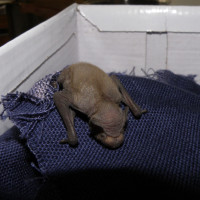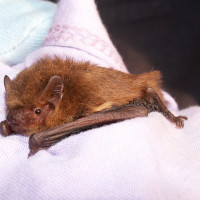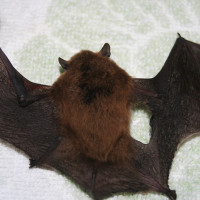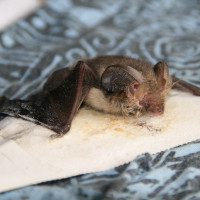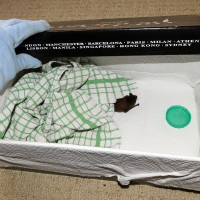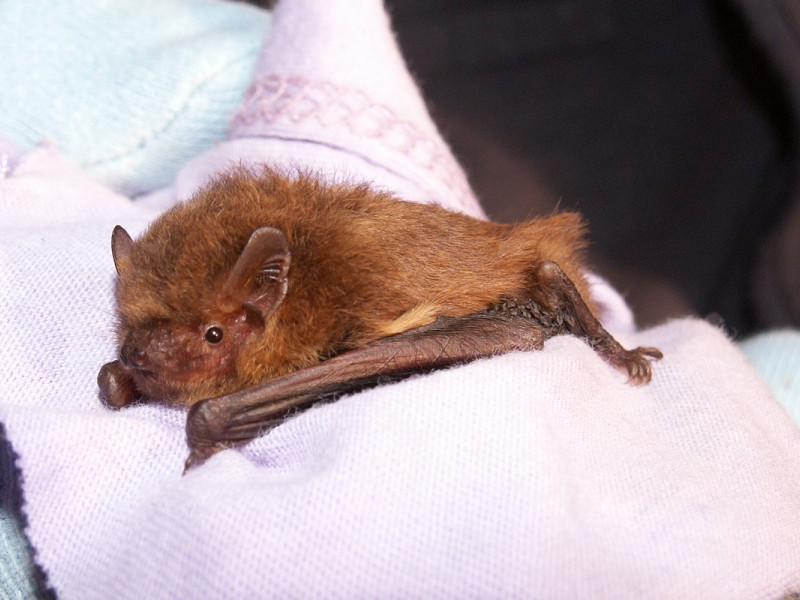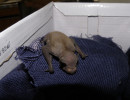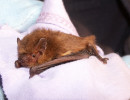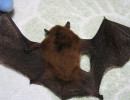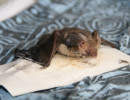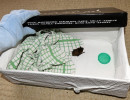There are many reasons why Kent’s bats get into trouble and need to be cared for by a trained bat carer. These are some of the most common reasons that bats need our care:
Caught by a cat
Cats can hear bat echolocation calls. They often climb onto roofs or walls to get closer to bats as they emerge from their roosts and swipe them with their paws. They also jump up into the air to catch low flying bats. Their sharp claws can tear the bats wing membrane and break their delicate bones. The claws and teeth carry lots of bacteria which can cause a fatal infection in the bat. Sadly many bats injured by cats die or have to be put to sleep as they are too badly injured to recover.
How can you help? Bring your cat indoors half an hour before sunset and ideally keep it in all night from April to October when bats are active.
Starvation
Insect numbers in the UK have declined in recent years. Sometimes bats struggle to find enough insects to eat, particularly when the weather is bad. Flying is a very energy intensive way to get about and so starving bats often become grounded, a bit like a car that has run out of petrol. Once on the ground they are vulnerable to attack by predators such as cats. A few days of rest, rehydration and feeding with an experienced bat carer may be all that is needed to get them fit to return to the wild.
Flypaper and sticky insect traps
Sticky fly paper is often hung in lofts or sheds where bats may roost. Bats are attracted to the noise of the distressed insects stuck on the fly paper and can get stuck to it themselves trying to catch the insects. Distress calls from one bat may attract further bats. If not found quickly the bats soon get exhausted and die from dehydration and starvation.
Accidents
Bats flying along roads may be hit by cars. One pregnant female bat travelled several miles clinging to the grille on the front of a car before being rescued.
As some bat species roost in houses they can be injured during building work, such as removing roof tiles or weather boards.
Lost baby bats
Bats usually give birth to one pup per year, in June or July. If the mother is killed or injured and can’t return to breast feed her pup it may go looking for her and be found on the wall of a house or on the doorstep. Sometimes the pups are just curious and get themselves lost and we try to reunite them with their mother in the evening.
Juvenile bats have to learn to fly and catch insects by following other bats from their roost to practise their skills. Sometimes they crash or get left behind and can’t remember the way home.


